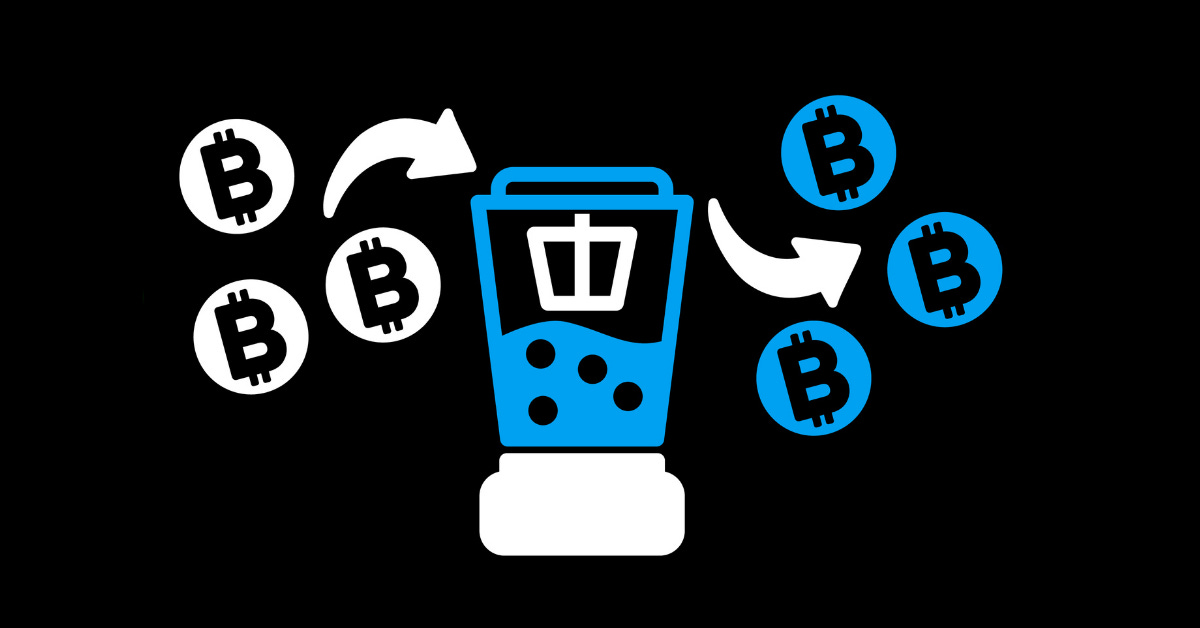Bitcoin Mixers
The Double-Edged Sword of Crypto Anonymity
In the wild west of cryptocurrency, where decentralization reigns and regulators salivate over control, Bitcoin mixers, also dubbed tumblers, have emerged as both a lifeline and a lightning rod. These shadowy services promise to cloak your transactions in a veil of anonymity, scrambling your Bitcoin with others’ to break the blockchain’s prying eyes. But as the noose of government oversight tightens, the question looms: are these tools a privacy saviour or a laundering honeypot? Let’s peel back the layers, ditch the establishment narrative, and dig into the legal quagmire, benefits, and downsides of Bitcoin mixers.
The Mechanics: A Digital Shell Game
Bitcoin mixers operate like a high-stakes poker shuffle. You send your BTC to a service, centralized or decentralized, where it’s pooled with funds from other users. After a randomized delay, the mixer spits out an equivalent amount to your new address, leaving the trail cold. Centralized mixers act as middlemen, charging a 1-3% fee, while decentralized options like Tornado Cash rely on smart contracts or CoinJoin protocols to erase the middleman risk. The pitch? Untraceable transactions in a world where every blockchain move is public game for forensic analysts.
Legality: A Gray Zone Under Siege
The legal status of mixers is a mess, and that’s by design. In the U.S., the Financial Crimes Enforcement Network (FinCEN) labels them money transmitters under the Bank Secrecy Act, demanding registration and anti-money laundering (AML) compliance. Yet, enforcement paints a different picture. Roman Sterlingov’s 2024 conviction for running Bitcoin Fog, laundering $335 million over a decade, landed him 150 months in prison, a clear shot across the bow. Meanwhile, Tornado Cash’s decentralized nature sparked a 2023 DOJ indictment of its developers, despite no central operator, raising questions about personal liability for code.
Globally, it’s a patchwork. The UK’s National Crime Agency wants AML oversight, while Europol’s 2023 seizure of ChipMixer flagged its ties to dark web crimes. Japan and Germany regulate, but many jurisdictions sit in limbo, leaving users to navigate a legal minefield. FinCEN’s 2023 proposal to treat all mixer transactions as money laundering risks adds fuel, yet the lack of explicit bans suggests regulators are still playing catch-up. The establishment cries “crime,” but the absence of uniform laws hints at a power grab cloaked as morality.
Benefits: Privacy in a Panopticon
For the privacy-minded, mixers are a godsend. Journalists dodging authoritarian regimes, whistle-blowers funding leaks, or even high-net-worth individuals shielding assets from hackers, all find solace in mixing. The blockchain’s transparency, once Bitcoin’s strength, became its Achilles’ heel as analytics firms like Chainalysis trace wallets with eerie precision. Mixers break that link, offering a shield in an era where financial surveillance is the norm. Decentralized options like CoinJoin or Monero swaps promise even tighter anonymity, sidestepping centralized vulnerabilities.
Downsides: The Criminal Stain and Risks
But here’s the rub: mixers’ anonymity cuts both ways. Chainalysis data pegs 25% of mixed funds as illicit, with North Korea’s Lazarus Group funnelling $455 million through Tornado Cash in 2022, cash for nukes, no less. Ransomware gangs and dark web vendors love them, and high-profile busts like Helix’s $60 million penalty in 2020 show regulators won’t blink. Users face risks too: centralized mixers can be hacked or turn rogue, losing funds, while even decentralized ones leave permanent blockchain records that future tech might crack. Exchanges often blacklist mixed coins, and legal blowback looms if your mix gets tied to dirty money.
The Verdict: Caveat Emptor
Bitcoin mixers sit at a crossroads. They empower the individual against a creeping surveillance state, yet their misuse fuels a criminal underbelly that gives regulators ammo. The establishment wants control, but their scattershot approach, sanctions on Sinbad, indictments on Tornado, smacks of overreach without clear legal footing. If you’re tempted, research relentlessly, stick to reputable decentralized tools, and know your local laws. The mixer market may wane as privacy coins like Monero gain traction, but for now, it’s a high-stakes gamble, privacy at a price.
Stay sceptical, stack sats wisely, and watch this space.


